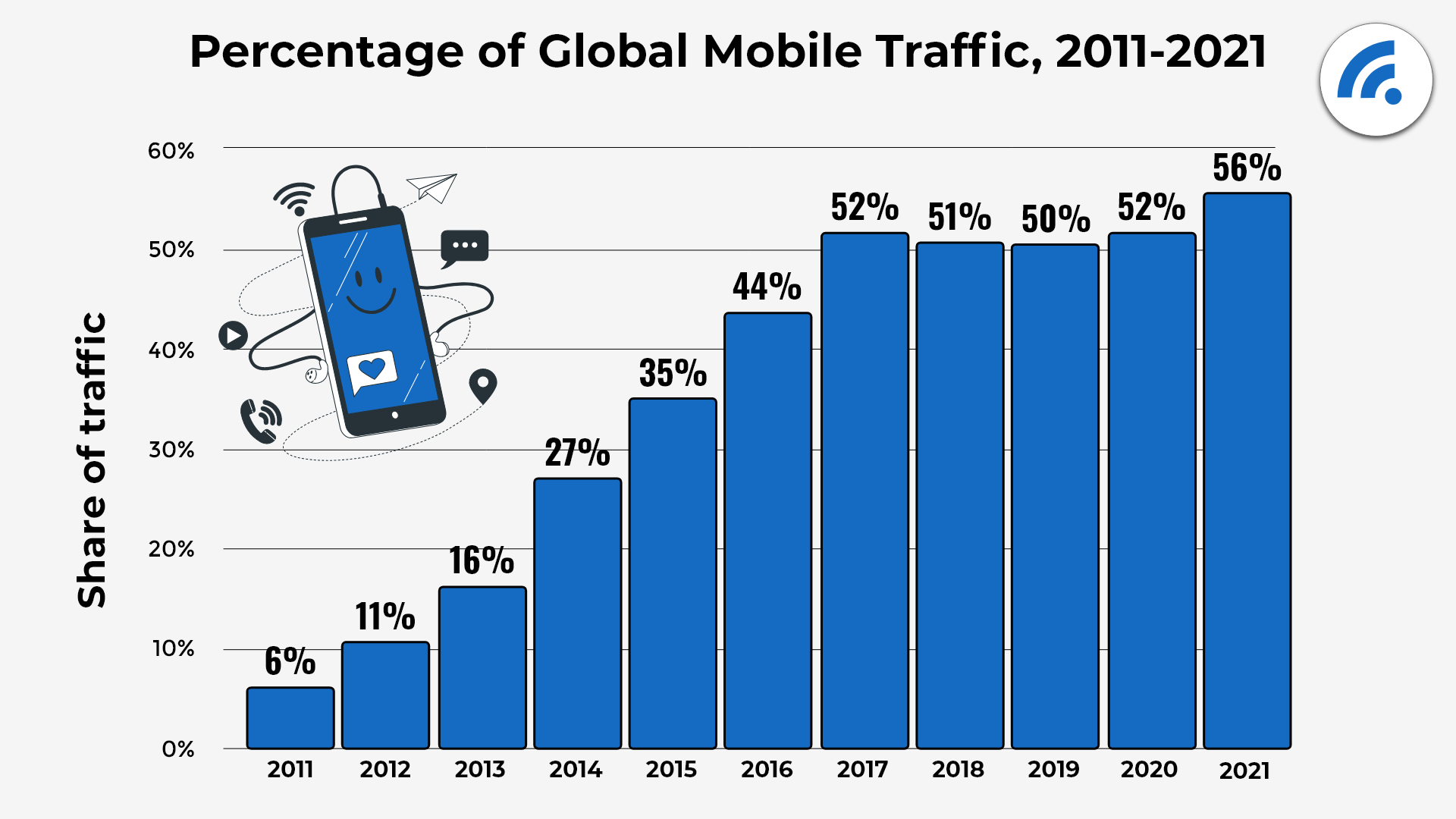Mobile devices are changing the way the Internet searches are being done on Google, Bing and Yahoo. Now, there are more searches taking place on smart phones and mobile devices than ever before.
Most of these searches are considered local search for products and services with local business establishments.
2021 Trends
Google My Business and Bing Places for Business are growing in popularity.
Mobile search engine marketing can do wonders for driving brand value and demand for your products or services by leveraging mobile devices to connect with more consumers in real time at any point in the customer life cycle.
Statistics are staggering
- Today, there are more mobile devices in the world (8.7 billion) than people (7.1 billion), due largely in part to our voracious appetite for new technology.
- Overall, 82 percent of U.S…… shoppers who used their smartphone to help them shop had used “near me” searches on their mobile device. The most popular categories of local search lookups via mobile were food and entertainment.
- For the few past years, mobile device usage has grown at an astronomical pace, with over 2.5 billion smartphone users worldwide in 2018 and a forecasted growth to a whopping 2.8 billion in 2020.
- Based on the latest data reported by Laptop Discovery (“Mobile vs desktop,” 2020), social media accounts for 25% of all digital media consumption and is primarily accessed via mobile devices.
- Over 52% of website traffic is coming from mobile devices, compared to just under 44% from desktop computers.
- Nearly 63% of all the searches on Google were from mobile devices in the United States in Q2 2019.
- Fashion retailers also convert a higher percentage of mobile traffic into sales (89.3%).
- 70% of the time spent on YouTube is through users’ mobile devices.
- More than half of the internet traffic worldwide is driven through mobile devices, with current trends indicating mobile share to further increase to as high as 80%.
- 46% of adults prefer to use their mobile devices to search for items before purchasing them over their desktop or laptops.
Mobile Revolution
Smartphones and mobile devices are revolutionizing the way people communicate with one another and the way businesses connect with their target markets.
Against this backdrop, mobile search rises as a promising field, with users’ ability to quickly obtain relevant results SERP based on their location as one of its most attractive features.
A small business looking for growth can take advantage of this massive number of potential clients by creating digital marketing platforms that are mobile friendly and suit the needs of these users.
Even in the business-to-business world, about 50 percent of inquiries come from mobile devices, and the source seems to indicate that the percentage is rising.
More people are owning more mobile devices as well, with an example being one or two-family computers but everyone owning a smartphone.
The interaction of these variables means that search engine crawling, indexing, and ranking processes differ between devices.
Optimizing for mobile devices requires many of the same best practices of desktop SEO.
People spend more and more time on their mobile devices, interacting with the web in a variety of ways.
Before you can optimize your website for mobile devices, it’s necessary to understand what mobile local search engine optimization is.
However, even though mobile device use is growing quickly, these devices are not pushing computers out of the picture.
After all, whether you’re talking about desktops or mobile devices, content is one of Google’s top three search ranking factors.
In a nutshell, mobile search engine optimization is a process that ensures people who visit your website are delighted by an experience that’s designed for the mobile device they’re using.
Historical Benchmarks
- Through 2016 and early 2017, the retail conversion rate for desktops was around 3.7 to 4% while the conversion rate for smartphones was around 1.25 to 1.34%.
- Global internet usage through mobile devices (not including tablets) was nearly 8.5% in January 2012, StatCounter reported, using stats aggregated from 3 million sites.
- Almost half (49.7%) of U.S…… mobile subscribers now own smartphones, as of February 2012, according to Nielsen.
- Furthermore, Android leads the U.S…… smartphone market with 48%, while iPhone follows with 32%, and Blackberry is third with slightly under 12%.
- Mobile devices are estimated to account for 25% of all paid search ad clicks in Google’s network by December 2012.
- Click-through-rates on mobile phones are as much as 72% higher than on desktops.
- In many developing nations, the majority of web users are mobile-only: highest are Egypt at 70% and India at 59%.
- Even in developed nations, including the U.S…… and UK at 25%, a large minority of web users are mobile-only.


